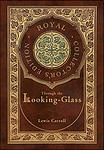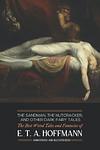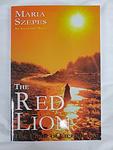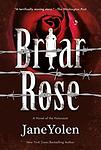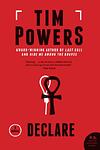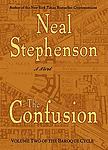The Greatest "Germany, Speculative Fiction" Books of All Time
Click to learn how this list is calculated.
This list represents a comprehensive and trusted collection of the greatest books. Developed through a specialized algorithm, it brings together 300 'best of' book lists to form a definitive guide to the world's most acclaimed books. For those interested in how these books are chosen, additional details can be found on the rankings page.
Genres
The category of "Germany" in terms of books would encompass literature that is set in or about Germany, its history, culture, people, and society. This could include works of fiction, non-fiction, memoirs, biographies, and historical accounts that explore various aspects of German life, such as the country's politics, economy, art, music, literature, and more. The category would be of interest to readers who are fascinated by Germany's rich and complex history, its contributions to world culture, and its ongoing role in shaping global affairs.
Speculative fiction is an umbrella genre encompassing narrative fiction with supernatural or futuristic elements. This includes genres such as science fiction, fantasy, horror, supernatural fiction, superhero fiction, utopian and dystopian fiction, apocalyptic and post-apocalyptic fiction, and alternate history. The unifying factor of speculative fiction is its departure from the narrative constraints of reality, exploring imaginative and often profound questions that challenge our understanding of the world and our place within it. These stories often delve into themes like the human condition, social commentary, and the exploration of philosophical and ethical dilemmas through the lens of the fantastical or the yet-to-be-possible. By pushing the boundaries of the known, speculative fiction invites readers to consider the myriad possibilities of existence and the potential consequences of our actions in worlds that are, at once, vastly different from and eerily similar to our own.
Countries
Date Range
Reading Statistics
Click the button below to see how many of these books you've read!
Download
If you're interested in downloading this list as a CSV file for use in a spreadsheet application, you can easily do so by clicking the button below. Please note that to ensure a manageable file size and faster download, the CSV will include details for only the first 500 books.
Download-
1. Frankenstein by Mary Shelley
This classic novel tells the story of a young scientist who creates a grotesque but sentient creature in an unorthodox scientific experiment. The scientist, horrified by his creation, abandons it, leading the creature to seek revenge. The novel explores themes of ambition, responsibility, guilt, and the potential consequences of playing God.
-
2. Slaughterhouse-Five by Kurt Vonnegut
The novel follows the life of Billy Pilgrim, a World War II veteran who has become "unstuck in time," experiencing his life events out of order. This includes his experiences as a prisoner of war in Dresden during the Allies' firebombing, his post-war life as a successful optometrist, his abduction by aliens from the planet Tralfamadore, and his eventual death. The book is a critique of war and a demonstration of the destructive nature of time, with a nonlinear narrative that reflects the chaos and unpredictability of life.
-
3. Gravity's Rainbow by Thomas Pynchon
Set during the end of World War II, the novel follows Tyrone Slothrop, a lieutenant in the U.S. Army, as he tries to uncover the truth behind a mysterious device, the "Schwarzgerät", that the Germans are using in their V-2 rockets. The narrative is complex and multi-layered, filled with a vast array of characters and subplots, all connected by various themes such as paranoia, technology, and the destructive nature of war. The book is known for its encyclopedic nature and its challenging, postmodernist style.
-
4. Berlin Alexanderplatz by Alfred Döblin
Set in 1920s Berlin, the book follows the life of Franz Biberkopf, a man recently released from prison who is trying to make an honest life for himself. However, he is drawn back into the criminal underworld due to circumstances and the influence of his acquaintance, Reinhold. The book is a vivid portrayal of city life in Weimar-era Germany, exploring themes of poverty, crime, redemption and the struggle to maintain one's morality amidst chaos and corruption.
-
5. Through the Looking Glass by Lewis Carroll
This sequel to Alice's Adventures in Wonderland sees the young protagonist, Alice, embarking on another whimsical journey after stepping through a looking glass. In this mirror-image world, Alice encounters talking flowers, living chess pieces, and a variety of eccentric characters, including Tweedledee and Tweedledum, the Red Queen, and Humpty Dumpty. The narrative is structured around a game of chess, with Alice striving to become a queen. The book is filled with clever wordplay, riddles, and fantastical elements, reflecting the author's unique take on logic and language.
-
6. James and the Giant Peach by Roald Dahl
A young boy named James, after being orphaned and forced to live with his cruel aunts, embarks on a magical adventure inside a giant peach. Alongside a group of anthropomorphic insects who also reside in the peach, James navigates through a series of fantastical events, including battling pirate-like creatures and flying across the Atlantic Ocean to New York City. This whimsical journey helps James escape his miserable life and find a new family amongst his insect friends.
-
7. Cryptonomicon by Neal Stephenson
The book is a sprawling narrative that intertwines two timelines: the first during World War II, focusing on the efforts of cryptographers and mathematicians working to break Axis codes, and the second in the late 20th century, following a group of entrepreneurs and hackers establishing a data haven in Southeast Asia. The novel explores themes of cryptography, mathematics, and the history of computing, weaving together real historical figures with fictional characters. As the plot unfolds across different continents and eras, it delves into the impact of information technology on society and the perpetual conflict between governments and individuals over the control of information and privacy.
-
8. The Invisible Man by H. G. Wells
The book is a gripping science fiction tale about a scientist who discovers a way to make himself invisible. However, the inability to reverse the process leads him into madness and terror. The narrative explores themes of alienation, social responsibility, and the moral implications of scientific advancement. The invisible man's struggle with his condition and society's reaction to his invisibility serve as a critique of humanity's fear and misunderstanding of the unknown.
-
9. The Tragical History of Doctor Faustus by Christopher Marlowe
This classic work of literature revolves around the character of Doctor Faustus, a scholar who is dissatisfied with traditional forms of knowledge and yearns for more. In his quest for ultimate power and understanding, he makes a deal with the devil, selling his soul in exchange for 24 years of service from the devil's agent, Mephistopheles. Despite the pleasures and knowledge he gains, Faustus eventually regrets his deal as he faces eternal damnation, symbolizing the human struggle between ambition and morality.
-
10. The Swarm by Frank Schatzing
"The Swarm" is a science fiction novel that explores the disastrous consequences of mankind's exploitation of the world's oceans. The narrative follows a group of scientists around the world as they try to understand a series of inexplicable, catastrophic natural disasters. They eventually discover that these events are not random but are the result of a collective intelligence in the sea, a swarm of marine life that has decided to fight back against humanity's destruction of their habitat. The book combines elements of ecological thriller, disaster novel, and speculative fiction as it explores the potential consequences of human interference with the natural world.
-
11. The Yiddish Policemen's Union by Michael Chabon
In an alternate reality where Jewish refugees found sanctuary in Alaska during World War II, the book follows a homicide detective in the Yiddish-speaking metropolis of Sitka as he investigates the murder of a former chess prodigy. The detective's quest takes him from the city's seedy underbelly to the highest echelons of power, and he uncovers a vast conspiracy that threatens the very existence of the Jewish homeland in Alaska. The novel is a blend of detective fiction, alternate history, and Jewish humor.
-
12. The Best Tales Of Hoffmann by E. T. A. Hoffmann
"The Best Tales of Hoffmann" is a collection of captivating and imaginative stories written by E. T. A. Hoffmann. This anthology showcases the author's unique blend of fantasy, horror, and romance, taking readers on a journey through mysterious and enchanting worlds. From a man's obsession with a mechanical doll to a musician's encounter with a supernatural violin, each tale is filled with suspense, intricate plots, and vivid characters that will leave readers spellbound.
-
13. The Red Lion by Mária Szepes
"The Red Lion" is a sweeping historical and esoteric novel that follows the journey of a man through various reincarnations as he seeks the secret of immortality and ultimate wisdom. Set against the backdrop of different eras, the protagonist's quest is driven by his encounter with the mythical Red Lion, an alchemical symbol of enlightenment and transformation. As he navigates the trials of life and the complexities of his inner world, the narrative delves into themes of karma, spiritual growth, and the eternal struggle between the forces of light and darkness within the human soul. The story weaves together philosophy, mysticism, and the relentless pursuit of a higher understanding of life and the universe.
-
14. Quicksilver by Neal Stephenson
"Quicksilver" by Neal Stephenson is the first book in "The Baroque Cycle" trilogy, set in the late 17th and early 18th centuries. The story follows the life of Daniel Waterhouse, a member of the Royal Society, as he navigates through a world of scientific discoveries, political intrigue, and personal relationships. From the coffeehouses of London to the court of Louis XIV in Versailles, the novel weaves together historical events and fictional characters to create a sprawling epic that explores the birth of modern science and the clash between old and new worldviews.
-
15. On Two Planets by Kurd Laßwitz
This classic science fiction novel explores the first contact between humans and the inhabitants of Mars, presenting a vision of a technologically advanced Martian civilization that has achieved a harmonious balance between technology, nature, and society. When a German expedition to the North Pole accidentally discovers a Martian colony on Earth, it sets off a series of events that lead to mutual curiosity, cultural exchanges, and misunderstandings between the two species. The narrative delves into themes of ethics, politics, and the potential for peaceful coexistence between vastly different cultures, offering a hopeful yet complex view of interplanetary relations. Through its imaginative depiction of Martian society and technology, the novel raises questions about human progress, environmental stewardship, and the universal values that might bridge worlds.
-
16. Briar Rose by Jane Yolen
"Briar Rose" by Jane Yolen is a retelling of the classic fairy tale of Sleeping Beauty, set against the backdrop of the Holocaust. The story follows Rebecca, the granddaughter of a Holocaust survivor named Gemma, as she tries to uncover the truth behind her grandmother's mysterious past. Through Gemma's haunting story of survival and love, Rebecca learns about the power of family, history, and storytelling. The novel is a poignant exploration of the ways in which the past continues to shape the present, and the importance of remembering and honoring those who came before us.
-
17. Declare by Tim Powers
In this supernatural espionage thriller, a British intelligence agent uncovers a secret history of paranormal forces and Cold War intrigue. The protagonist is drawn into a world where mythical creatures and occult rituals are entwined with real historical events, particularly those involving the Soviet Union. As he navigates a shadowy battlefield that spans from the ruins of post-war Europe to the deserts of the Middle East, he must confront a demonic entity and unravel a conspiracy that challenges his understanding of reality, all while grappling with personal demons and a complex love interest. The novel blends historical fact with dark fantasy, creating a unique tapestry of suspense and supernatural warfare.
-
18. The Baroque Cycle by Neal Stephenson
The Baroque Cycle is an expansive historical fiction series that weaves together a rich tapestry of themes including science, politics, philosophy, and adventure during the late 17th and early 18th centuries. The narrative follows an eclectic cast of characters, ranging from natural philosophers and mathematicians to pirates and nobles, as they navigate the complex socio-political transformations of the Enlightenment era. The series delves into the origins of modern finance, the scientific revolution, and the geopolitical power shifts of the time, all while exploring the intricate interplay between the emerging modern world and the intricate, ornate culture of the Baroque period.
Reading Statistics
Click the button below to see how many of these books you've read!
Download
If you're interested in downloading this list as a CSV file for use in a spreadsheet application, you can easily do so by clicking the button below. Please note that to ensure a manageable file size and faster download, the CSV will include details for only the first 500 books.
Download



